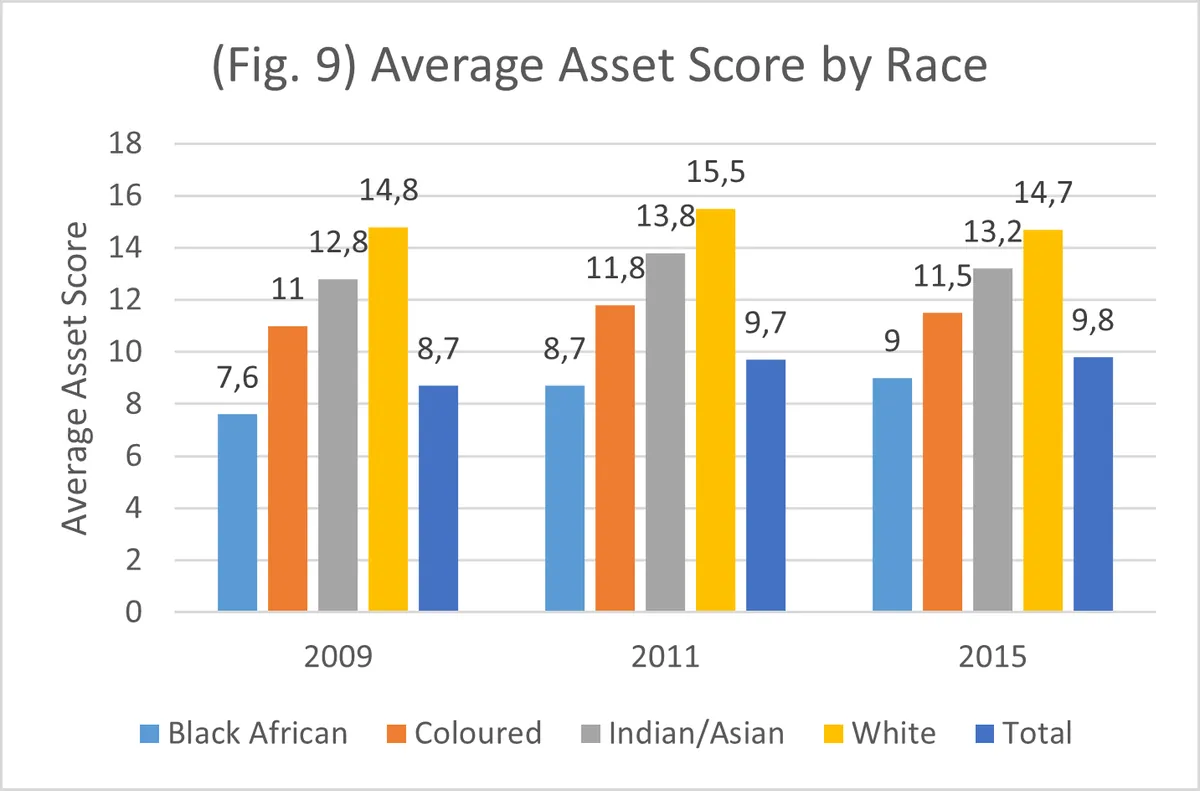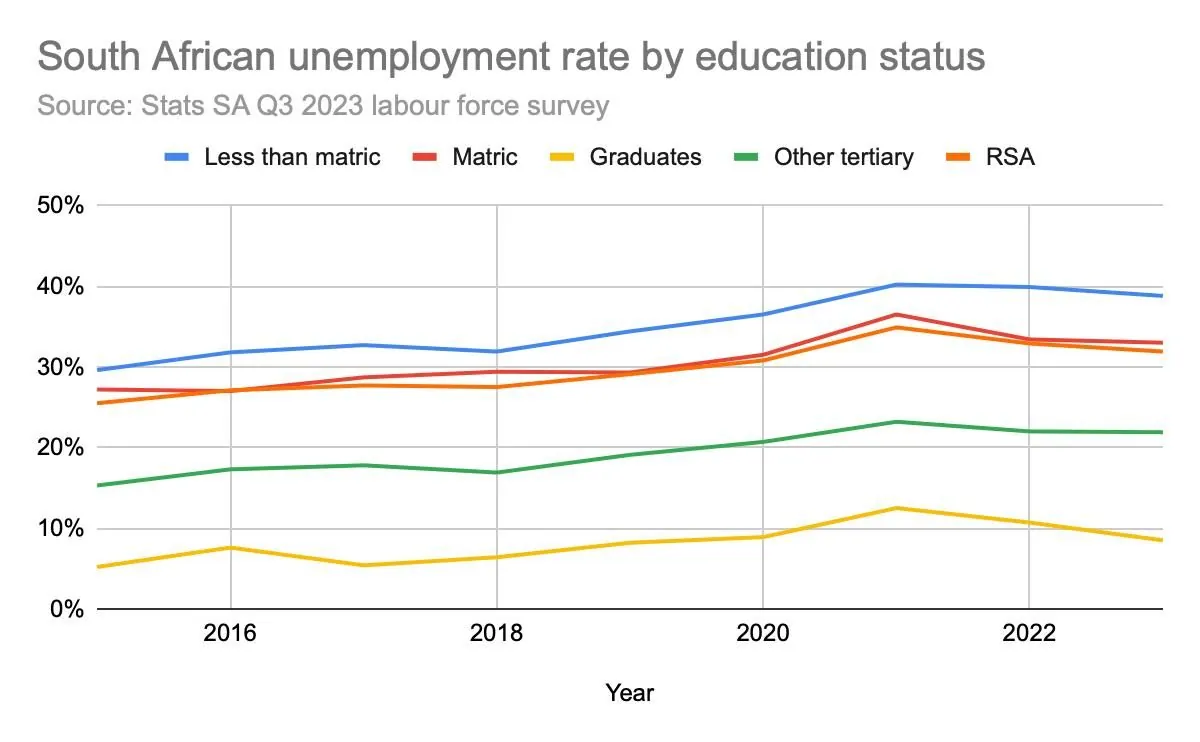South Africa's Racial Economic Divide Persists 30 Years Post-Apartheid
South Africa grapples with persistent racial economic disparities three decades after apartheid's end. Unemployment, management roles, and company ownership reflect ongoing challenges in achieving equality.

Three decades after the fall of apartheid, South Africa's economy continues to exhibit significant racial disparities, prompting discussions about the effectiveness of its Black economic empowerment legislation. This persistent divide is evident across various sectors, from unemployment rates to corporate leadership and ownership.
The unemployment landscape in South Africa paints a stark picture of racial inequality. As of April-June 2023, the nation's overall unemployment rate stood at 33.5%. However, a closer look reveals a troubling disparity: Black South Africans faced a 37.6% unemployment rate, while their white counterparts experienced a much lower 7.9%. This gap has widened over time, with the unemployment rate among Black South Africans rising by more than nine percentage points since 2014.

In the private sector, management control remains predominantly in the hands of white South Africans. Despite comprising only 8% of the country's 64 million population, white individuals occupied 65.9% of top management positions in 2022. In contrast, Black South Africans held just 13.8% of these roles. This imbalance gradually decreases at lower job levels, with Black South Africans representing 82.8% of unskilled labor positions.
The issue of company ownership on the Johannesburg Stock Exchange (JSE) is subject to debate. While the Broad-Based Black Economic Empowerment Commission reported average Black ownership at nearly 30% in 2022, some economists argue that the actual figure for listed companies may be as low as 1%. This discrepancy highlights the challenges in accurately assessing progress in economic transformation.
Board membership on listed companies shows potential for improvement, with Black representation reaching around 47% in 2022. However, the Commission noted that limited data makes it difficult to gauge overall industry performance accurately. Notably, no JSE-listed company reported 100% Black ownership.
South Africa's journey towards economic equality is set against a backdrop of remarkable achievements and unique characteristics. As the world's largest producer of platinum and home to its oldest wine industry outside Europe and the Mediterranean, the country boasts significant economic potential. Its progressive constitution and status as Africa's largest economy by GDP further underscore its capacity for positive change.
Yet, the persistent racial economic divide serves as a reminder of the long-lasting effects of apartheid and the complexities of achieving true economic transformation. As South Africa continues to grapple with these challenges, the effectiveness of its Black economic empowerment policies remains a topic of ongoing debate and scrutiny.
"As long as poverty, injustice and gross inequality persist in our world, none of us can truly rest."
This sentiment continues to resonate as South Africa strives for a more equitable economic future, balancing its rich diversity and potential with the need to address historical injustices and create opportunities for all its citizens.


































